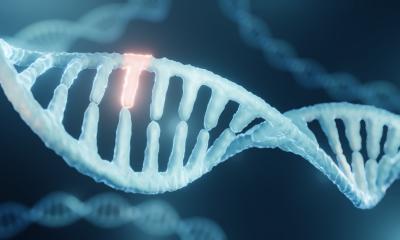Baldness
Why do shorter men go bald more often?
Short men may have an increased risk of becoming bald prematurely. An international genetic study under the leadership of the University of Bonn at least points in this direction. During the study, the scientists investigated the genetic material of more than 20,000 men. Their data show that premature hair loss is linked to a range of various physical characteristics and illnesses. The work has now been published in Nature Communications.

It has already long been known that men with premature hair loss suffer from heart diseases and prostate cancer somewhat more often. The new genetic data now confirm suspicions that there are further connections to other characteristics and illnesses. In their study, the researchers analyzed genetic data from around 11,000 men with premature baldness. Around 12,000 men with no hair loss served as a control. The participants came from seven different countries.
“We were thus able to identify 63 alterations in the human genome that increase the risk of premature hair loss,” explains Dr. Stefanie Heilmann-Heimbach. The human geneticist at the University of Bonn is one of the lead authors of the international study. “Some of these alterations were also found in connection with other characteristics and illnesses, such as reduced body size, earlier occurrence of puberty and various cancers.”
The genetic findings thus also confirm the link between hair loss and an increased risk of prostate cancer. The link with heart disease is much more complicated. Genes that reduce the risk were found along with genes that increase the risk.
“We have also found links to light skin color and increased bone density,” explains Prof. Markus Nöthen, Director of the Institute of Human Genetics at the University of Bonn. “These could indicate that men with hair loss are better able to use sunlight to synthesize vitamin D. They could also explain why white men in particular lose their hair prematurely.”
What’s more, the study offers new insights into the biological causes of hair loss by identifying the genes involved. Immune and fat cells in the scalp are obviously also involved in hair loss along with the cells of the hair follicle.
No cause for concern
However, which molecular mechanisms underlie the links between premature hair loss and other illnesses is only understood to a certain extent. The future aim will be to analyze these links and the signal paths involved in detail.
“However, men with premature hair loss do not need to be concerned,” reassured Prof. Nöthen. “The risks of illness are only increased slightly. It is, however, exciting to see that hair loss is by no means an isolated characteristic, but instead displays various relationships with other characteristics.”
Source: Institute of Human Genetics, University of Bonn
17.03.2017





